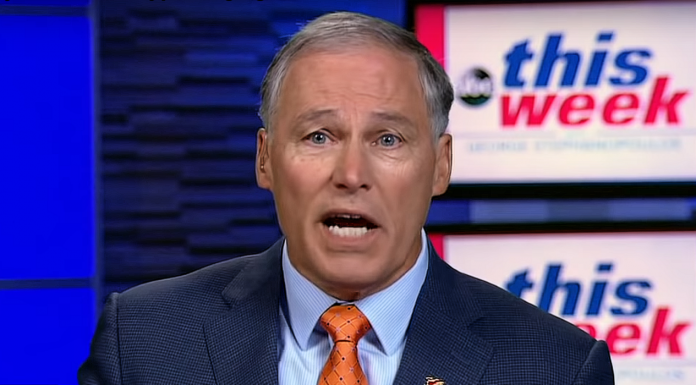(The Center Square) – The Washington Federation of State Employees’ contention that a tentative agreement reached with the state is “the largest compensation package in our union’s history” seems to be backed up by the more than $1 billion price tag, according to information posted by the state Office of Financial Management.
Based on spreadsheets on OFM’s website regarding the collective bargaining agreement for 2023-25, the cost includes across-the-board pay raises – a 4% raise on July 1, 2023, followed by a 3% raise on July 1, 2024 – as well as $1,000 retention bonuses, and $1,000 incentive payments for getting a COVID-19 booster shot.
The provisional agreement is the product of secret negotiations between the union and the Governor’s Office.
In 2002, then-Gov. Gary Locke signed legislation, House Bill 1268, into law that gave state employee union executives the power to negotiate directly with the governor behind closed doors for salary and benefit increases. The law went into full effect two years later.
Before that change, collective bargaining for state employees was limited to non-economic issues such as work conditions. Salary and benefit levels were determined through the normal budget process in the legislature.
Lawmakers will have the opportunity to approve or reject the entire tentative agreement between the WFSE and Gov. Jay Inslee.
None of that sits well with state Sen. John Braun, R-Centralia.
“I don’t fault public employees for wanting raises,” he said in a Monday news release. “Right now, we only know that the collective bargaining agreements will cost more than $1 billion from the general fund and $1.6 billion in total funds.”
Braun questioned the governor’s spending priorities in light of no broad-based tax relief during this year’s legislative session.
“Our plan to cut the gas tax would have shared the benefit among more than 7 million people statewide,” he said, referring to legislation in the form of Senate Bill 5897 that would have suspended the state’s portion of the gas tax for all of 2022.
“All we heard in response to our gas tax relief proposal last session was that the state couldn’t afford it,” Braun said. “Apparently, it could. It just didn’t want to. And saying that the proposal would benefit the oil companies was a false, but convenient and triggering, talking point for the governor. Perhaps he just wanted to reserve the money to placate his donors and tax relief for everyone threatened [by] that.”
The Center Square asked the Governor’s Office for a response to Braun’s comments.
“Economists broadly agree that a gas tax cut would have very minimal benefits for individual households and would have hurt funding for critical infrastructure,” Inslee spokesman Mike Faulk said via email. “Meanwhile, oil companies are enjoying record profits, and just today [Wednesday] OPEC announced it would slash production in response to the recent drop in global prices with the stated goal of getting prices back up.”
Given the optics of the state potentially paying out more than $1 billion in the agreement with the WFSE when no major tax cuts were passed during this year’s legislative session, The Center Square inquired about the possibility of Inslee supporting broad-based tax relief in his 2023-25 budget submittal that will come out later this year ahead of the 2023 legislative session.
“The governor will be rolling out his budget proposal in December and details will be available then,” Faulk said.
Braun was also critical of the closed-door nature of the negotiations between the union and the state.
“Even worse is that the agreements were negotiated in secret,” he said. “The governor refuses to open up negotiations. The only opportunity the Legislature has to provide input is to either approve them as is or not. We can’t change any of the specifics.”
Faulk previously told The Center Square the bargaining process has been consistent across administrations and that the Legislature will have final say.
“The legislators on the Joint Committee on Employment Relations meet with OFM throughout the year and prior to bargaining to provide feedback about the bargaining goals and process, and then the Legislature has to vote to enact many of the provisions,” he said.
The JCER has an Oct. 13 work session scheduled to receive an update from OFM on the tentative agreement.

